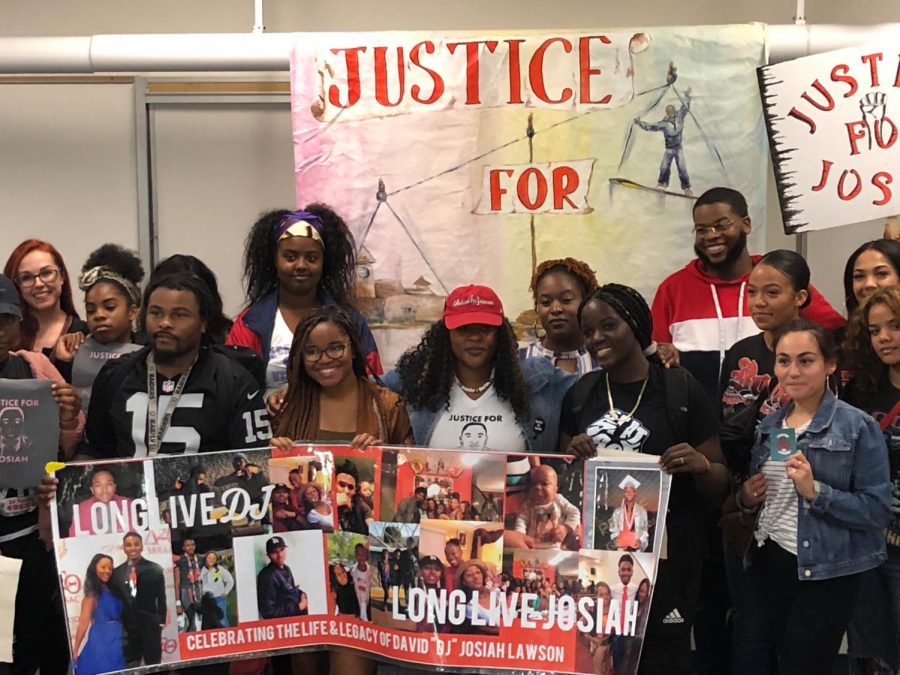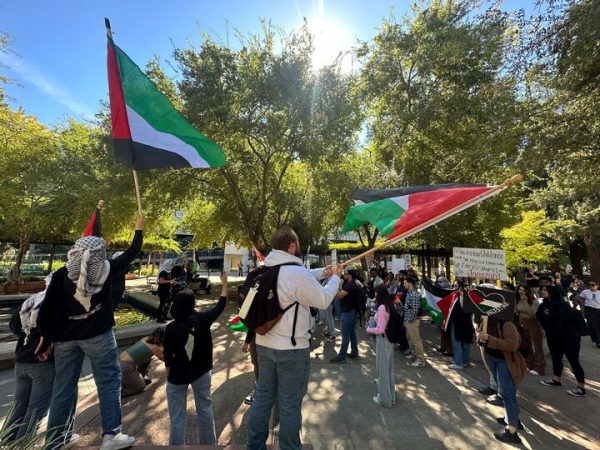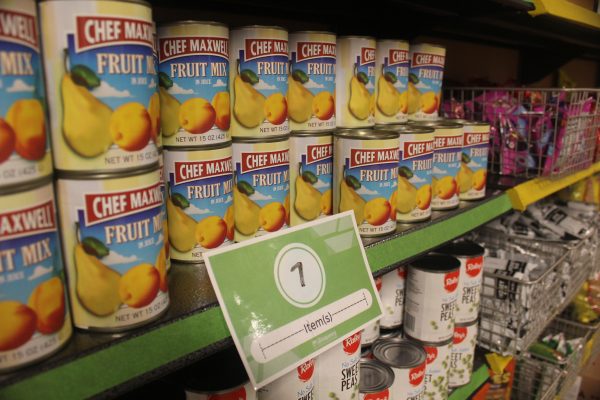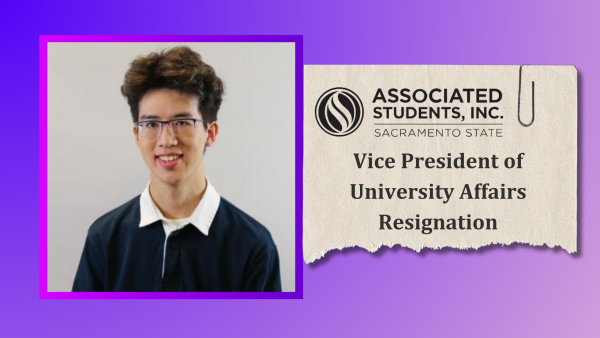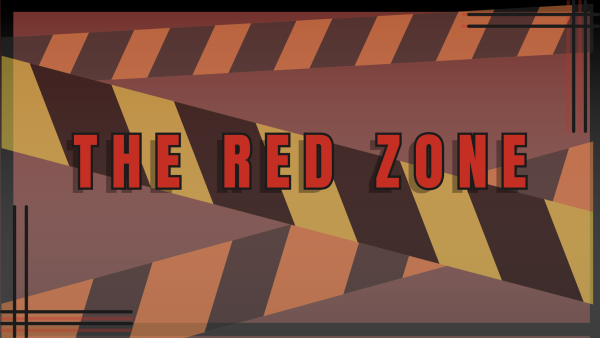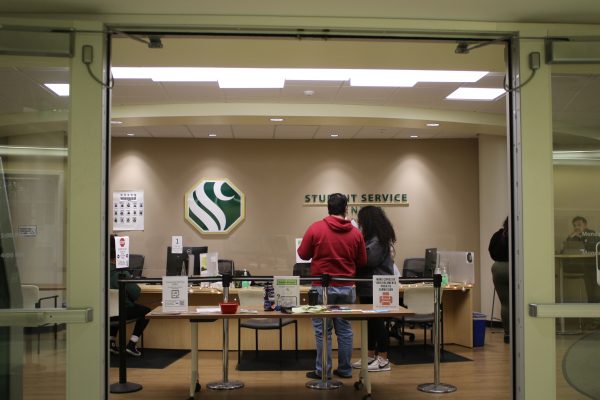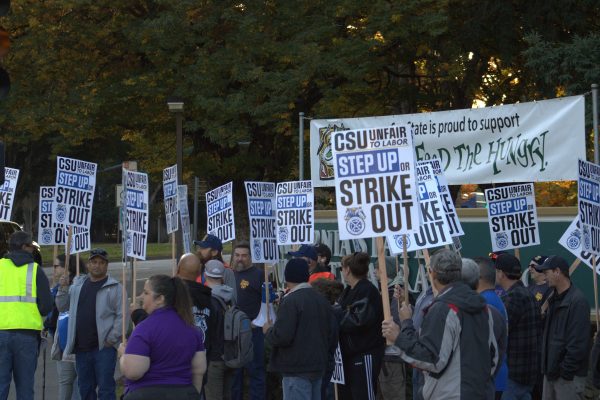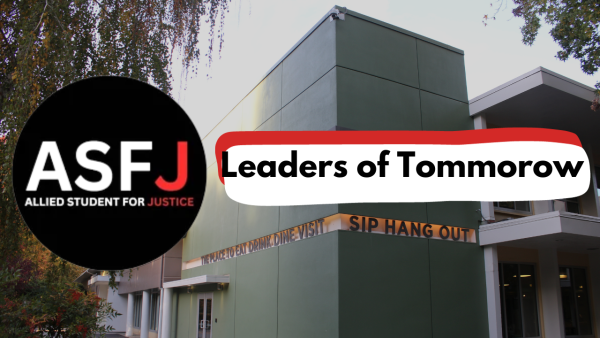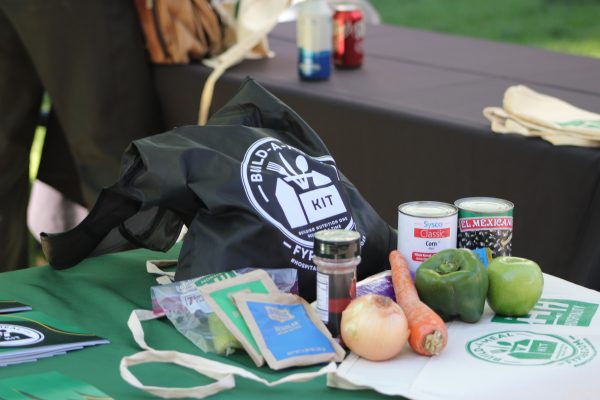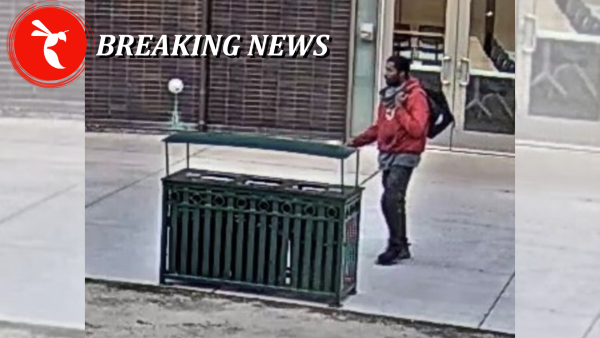Mother of slain Humboldt student led discussion at Sac State
An emotional discussion ensued after documentary screening about slain son
Julia McPherson -The State Hornet
Charmaine Lawson (center) with Sac State SQE and other supporters of the ‘Justice For Josiah’ movement.
SQE held a discussion Thursday night with Charmaine Lawson, mother of slain Humboldt State student David Josiah Lawson.
The discussion followed a screening of the documentary about her son’s death, “Unsolved Hate: Arcata,” which was produced by Sacramento State Alumna Courtney Wagner.
The event was part of a larger CSU-wide “Justice For Josiah” movement happening across campuses statewide. Nearly every seat was full in Sequoia Hall 301 that evening to screen the 25-minute documentary.
Lawson was stabbed at an off-campus party April 15, 2017, according to Arcata news site Mad River Union. Police were dispatched to the scene, but a friend of Lawson’s, Elijah Chandler, who gave him CPR at the scene, said the authorities did not attend to Lawson’s wounds in a timely manner, according to Inside Higher Ed.
Inside Higher Ed reported that instead, authorities focused on crowd control. Lawson bled out in front of the house and died from his injuries at Mad River Hospital a few miles away. One person was arrested on suspicion of murder, Kyle Zoellner, according to Mad River Union, however, the charges were later dropped due to a lack of evidence.
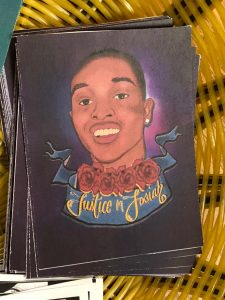
Stickers were given out at the event to raise awareness of the ‘Justice for Josiah’ movement.
During the discussion afterward, attendees provided support for Charmaine Lawson, and treated her with love. “What gives me strength is seeing all of you here tonight,” Lawson said. “You all did not know my son, but you love him enough to be here. Having your love and feeling your warmth will get me through this.”
During the discussion, Lawson explained Josiah’s case, how she feels that Humboldt state and Arcata authorities have neglected her in the face of tragedy, and how she has coped with everything since. Lawson said she has been “busy fighting for justice for my son and campus safety for all students across California.”
“I haven’t even grieved for my son, it’s so hard to look at pictures of him, I’m just not there yet,” Lawson said. “I haven’t slept in my own bed in 18 months. To this day, I still check my phone and think he is going to call me.”
Charmaine Lawson has held vigils to keep her son’s name alive, held community fundraisers, and demanded action of the justice system and on the part of administrators at all levels at California colleges. She said that she refuses to give up on her son’s justice and wants all campuses to be safe for everyone.
“My son’s case needs to be solved, they [Arcata police] are not motivated to solve it,” Lawson said. “I believe they thought this was going to be just another black kid, because nothing has happened in the past with these types of cases. They were wrong. It stops with David Josiah Lawson.”
“Students of color do not feel safe in Arcata, even though the majority of Humboldt State’s recruits are African-American,” Lawson said. “They are not warning students of the climate they are coming into.”
The California Faculty Association has joined the “Justice For Josiah” movement and weighed in on the recruitment concept during the discussion.
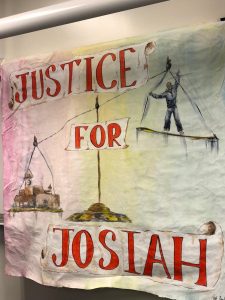
“There is an intentional recruiting of students of color, [the university] gives this promise, but it’s not enough to just recruit these students; it is critical that there are institutional policies to ensure that you graduate alive,” said Margarita Berta-Alivia, chapter president of The California Faculty Association.
Sociology student Kendra Jackson said she felt like she could relate to Charmaine.
“As a mother of an African-American son I can’t understand what you’re going through, but I can see it and feel it,” Jackson said. “I admire you so much for demanding justice for your son. We (African-Americans) are so conditioned that if someone tells us no, we accept it out of fear of seeming uncooperative.”
.@TheStateHornet Sac State SQE is screening a documentary by alumna Courtney Wagner about the death of David Josiah Lawson. It will be followed by a discussion with Charmaine Lawson, both pictured below. pic.twitter.com/7pMXoGB9ET
— julia mcpherson (@julia_violets) October 19, 2018
Wagner said she hopes her documentary will start a discussion at Sac State.
“I want my audience to feel like wow, I wonder what hidden racism there is in my immediate community and I wonder what I can do to be a more open-minded person,” Wagner said.
The documentary can be found on YouTube and a list of resources appear at the end of the movie that Wagner hopes will get students involved.
Lawson urged Sac State students to get involved in the movement by sharing her son’s story, liking and commenting on the “Justice for Josiah” movement on social media accounts, and holding school faculty and justices accountable.
Your donation will support the student journalists of Sacramento State University. Your contribution will allow us to purchase equipment and cover our annual website hosting costs.



































































































































